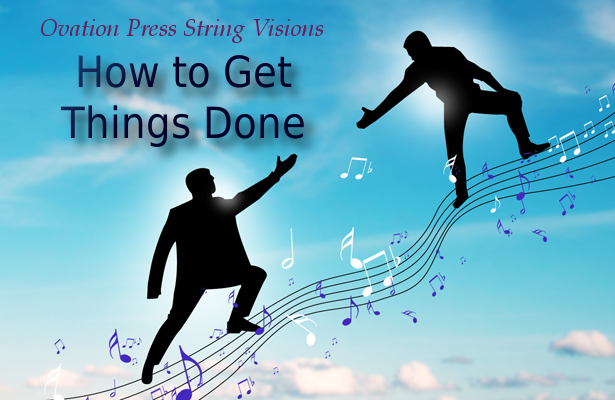How can we make sure that we are using time in an effective manner? Experts and laymen alike have come up with hundreds of strategies to make themselves more productive. Many of these revolve around a few pillar concepts:
- Concentration
- Simplicity
- Purpose
Three Keys to Help You Unlock Quality Time
Concentration
The less focused you are, the more inefficient you will be in your using your time. The real issue with focus comes down to HOW LONG you can hold it.
Concentration is like any physical or mental muscle. The only way to develop it is to push beyond the point when you feel like quitting.
Ten more minutes… ten more pages… ten more calls… ten more ideas…
By stretching yourself in this way, you increase your endurance. The longer you can hold a focused state of mind, the more valuable your time will become.
Increasing the value of your time is critical to productivity. As Hans Jensen has written:
Find small chunks of previously unused time. Throughout each day there are often small breaks–in between, before, or after–lessons, rehearsals, and classes. Also, identify pockets of time before or after meals. Many of these time periods are not typically used in constructive ways.
Select two 10-minute periods every day that you would not normally have used for anything. Dedicate that newly found time for practice. Over the course of a year you will have gained 120 hours of extra practice time. For an undergraduate that is 480 hours over four years of study.
Leverage brief moments of time to create a powerful daily habit that will help you grow musically.
The power of the focused minute can take you a long way.
Simplicity
Keep things as simple as possible. Besides being more duplicable, a simple process will help prevent you from overextending.
When laying out a business development plan for a small start-up, you are forced to keep everything as streamlined as possible, because you have limited financial resources and you need to guard against overextending. As musicians (unlike those in the business world), we may or not be losing hundreds of dollars each day; however, for musicians and entrepreneurs alike, time will always be a scarce resource. When we improve our concentration we increase the equity of our time, but too much complexity can easily undo that work by:
- forcing us to divide a scarce resource among more tasks;
- cluttering up our list of tasks, in turn making it harder to distinguish between what is really relevant and what could just be a time drain;
- increasing the difficulty of organizing and prioritizing short- and medium-term goals; and
- increasing your stress level, thereby making it harder to stay focused.
Purpose
Different learning strategies yield different results, so it is essential that you understand the purpose of what it is you are doing on any given day. For example, while practicing today, consider whether you are developing hard or soft skills?
1. “Hard” skills refer to those needing mastery for doing something in a single, specific way.
2. “Soft” skills are those applied to a task or goal which can be performed or accomplished in many equally, good ways.
Ask yourself how knowing whether you are working on “hard” or “soft” skills might change the way in which today’s practice fits with reaching your next goal?
Remember that when you break your long-term goals down, your medium- and short-term goals flow FROM them so that even tasks you set out for yourself, very early on in your journey, are in some way, moving you closer to reaching your destination. When you understand how different strategies move you towards or away from that endpoint, you will be able to incorporate those that are are most effective and appropriate, into your daily and weekly routines.
In Summary
☐ Develop your concentration muscle
☐ Keep your process simple
☐ Understand the purpose of your strategies
The purpose of these key tenets is to help you stay oriented in the correct direction towards your goals. That said, sometimes we end up veering off course despite our best preparation and care. What do you do when that happens?
To find out, stay tuned for the last chapter in this series.















Something implicit in the way you make your first point but is worth bringing out is the importance of knowing when you are going to stop. One of the reasons short, focused sessions are so productive is that you are working up to the finish point right from the start. And it’s worth breaking down longer chunks of time into defined units as well to get this end-effect. I’ve written about this subject here: http://www.helpingyouharmonise.com/attentionspan
So, I’d suggest rather than develop focus stamina by getting to the point you want to stop and then carrying on an extra ten minutes, you’ll do better by deciding in advance to add ten minutes to the session compared to the day before.
liz
Great ideas. Thanks so much for sharing here Liz. Come back more often!
Thank you, I’ve just been looking for info approximately this subject for a while and yours is the best I’ve discovered till now.
However, what concerning the conclusion? Are you certain concerning the
source?